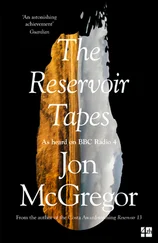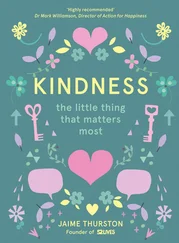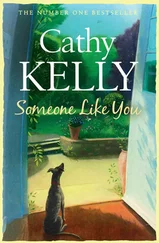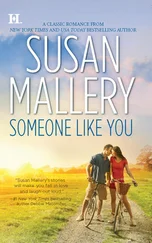Wainfleet
And sometimes it happens like this: a young man lying face down in the ocean, his limbs hanging loosely beneath him, a motorboat droning slowly across the bay, his body moving in long, slow ripples with each passing shallow wave, the water moving softly across his skin, muffled shouts carrying out across the water, and the electric crackle of waves sliding up against the rocks and birds in the trees and the body of a young man lying in the ocean, face down and breathlessly still.
*
You open your eyes, blinking against the light which pulses through the water. You look down at the sea floor, hearing only the hollow suck and sigh of your own breath through the snorkel, seeing the broken shells, the rusting beer cans, the polished pieces of broken glass. Black-spiked sea-urchins clinging to the rocks. Tiny black fish moving through the sea-grass. A carrier-bag tumbling in tight circles at the foot of the shoreline rocks. You hold out your hands, seeing how pale they look in the water, the skin of your fingers beginning to pucker a little. The sea feels as warm as bath-water, and you’re almost drifting off to sleep when you hear the sudden smack and plunge of something hitting the water nearby.
You turn your head, and see a young boy sinking through the water, his knees to his chest and his eyes squeezed shut. Above, way up in the air, another three boys are falling from a high rocky outcrop, their shorts ballooning out around their hips, their hair rising, their mouths held open in anticipatory cries. One of them flaps his hands, trying to slow his fall. The other two reach out and touch the tips of their fingers together. All three of them look down at the water with something like fear and joy.
Your friends are watching as well, sprawled across a wide concrete ledge jutting out over the sea. Claire turns and looks for you, waving, brushing the knots from her wet tangled hair. Her pale skin is shiny with sun-cream and seawater.
‘We’re making a move now,’ she calls; ‘you coming?’
The others are already standing up, brushing bits of dirt from their skin and shaking out their towels. You lift the mask from your face and take the snorkel from your mouth and tell her you’re staying in a bit longer. You’ll catch them up in a minute, you say.
They pick up the sun-cream and water bottles, the paperback books, the leaflets from the tourist information office in town. The girls lift up their damp hair, squeezing out the water and letting it run down their backs. Andy buttons his shirt and steps into his unlaced trainers.
‘We’re not waiting for you,’ Claire says. You wave her off and say that’s fine. You’ll be out in a minute or two.
The night before, sitting at a table outside one of the cafés in the old town, the girls had got up to go to the toilet together, leaving their tall glasses of beer on the table and tugging at their skirts. Andy had caught your eye, and lifted his drink in salute, and you’d both smiled broadly at your good fortune. Nothing had needed to be said. You’d left behind long months of exams and anxieties in the flat grey east of England and landed suddenly in this new world of cheap beer and sunshine, of clear blue seas and girls who wore bikinis and short skirts and slept in the room next door. It felt like something you’d both been waiting years for; something you’ve long been promised. It felt like adulthood. The girls have already made it clear, by their pointing out of waiters and boys on scooters, that they’re more interested in the locals than in the two of you. But there’s still a chance. A feeling that something could happen; that anything could happen. It seems worth thinking about, at least.
You put the mask over your eyes and lie back in the water for a while, looking up at the steep sides of the bay, kicking your legs to send yourself drifting away from the rocks. You’re not sure you ever want to get out. At home, the beach is a few minutes away, and you’ve grown up running in and out of the sea. But you’ve never really swum; there, you run in, shouting against the shock of the cold, and run out again as soon as you can. Here, you could sleep in the clear warm water. You watch the others making their way up the path between the pine trees and oleander bushes. A bus drives along the road at the top of the hillside, stops near the gap in the railings, and moves off. A young couple on a scooter overtake it, the boy riding without a shirt or a helmet, the girl wearing a knee-length wraparound skirt and a bikini top, her hair flowing out behind her. Birds hang still in the warm currents of air drifting up the side of the hill. The grasshoppers sound out their steady scraping shriek. The air is thick with the scent of crushed pine needles and scorched rosemary, heavy with heat.
Along the bay, at the bottom of a steep flight of steps cut straight from the rock, there’s another small bathing jetty. A girl in a black swimming costume sits on the edge, her feet in the water, a white towel hanging over her head, reading a book.
Further along, where the bay curves round to form a long headland jutting out into the sea, there’s an ugly concrete hotel with its name spelt out in white skyline letters. Half the letters are missing, and when you look again you see that the whole building is a ruin: the windows shot to pieces, gaping holes blown in the walls, coils of barbed wire rolling across the golden sands. Shreds of curtain material hang limply from windows and patio doors, lifting and dropping in the occasional breeze.
You hear some girls screaming, and look round to see a group of boys soaking them with water bottles, laughing when the girls scramble to their feet and retaliate with flat stinging hands. The sounds carry softly across the water.
You’d seen a map, this morning, at the entrance to the city walls, marked with clusters of red dots. The red dots were to show where mortar shells had landed during the war, where fires had started, where roofs had come crashing in. It was the only sign you could see, at first, that anything had happened here. Everything in the town seemed neat and clean and smooth: the streets polished to a shine, the ancient stonework unaffected by the destruction which had so recently poured down upon it. But when you’d looked closer you’d seen that the famous handmade roof tiles had been outnumbered by replacements in a uniform orange-red, and that the stonework of the historic city walls alternated between a weathered grey and the hard white gleam of something new. There were whole streets boarded off from the public, piled with rubble. There were buildings whose frontages had been cleaned and repaired but which were still gutted behind the shutters. And in a tiny courtyard workshop, under the shade of a tall lemon tree, you’d seen a fat-shouldered stonemason carving replica cornices and crests, the shattered originals laid out in fragments in front of him, glancing over his shoulder as if to be sure that no one could see. You’d wondered how long it would take for this rebuilding to be complete. How much longer it would take for the new stones to look anything like the old.
The others are halfway up the hill now, walking slowly along the pine-needled path, letting their hands trail through the sweet-smelling bushes, stopping for a drink of water and looking down at the calm shining sea. You watch them for a moment. You wave, but none of them sees. You call. If you were to get out now you might be able to catch up with them before they get on the bus. But if you wait for the next bus, they’ll have cleared up by the time you get back, and got some food ready, and be waiting for you. Jo went out to the market before lunch, so the apartment’s small kitchen is well stocked. You can imagine arriving back to find the others sitting on the terrace around a table loaded with food: bread and cheese and oranges, olives and pickles and jam, big packets of paprika-flavoured crisps. You can imagine cracking open a beer and joining them, making plans for the night.
Читать дальше
Конец ознакомительного отрывка
Купить книгу
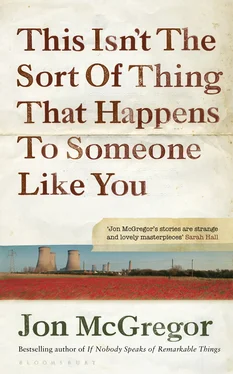
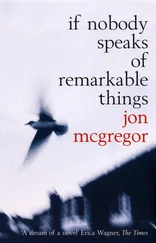


![Нил Уолш - Единственное, Что Имеет Значение [The Only Thing That Matters]](/books/393630/nil-uolsh-edinstvennoe-chto-imeet-znachenie-the-onl-thumb.webp)
